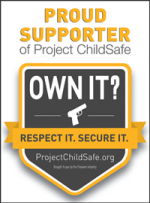One of the authors of the Johns Hopkins poll thinks the explanation for why CNN found less confidence in expanded background checks lies right at the beginning of its question. The poll asked (emphasis ours):Or, put another way, try and hide what the real goal of your policy is by avoiding "trigger" words so you can show more support for your proposals.
“If gun control laws were changed so that more comprehensive background checks were put in place for all gun purchases, how likely do you think it is that they would prevent those with mental health problems from buying guns? Prevent convicted criminals from buying guns?”
Beth McGinty, a professor in the Johns Hopkins Department of Health Policy and Management and co-author of the poll released this summer, says that phrases like “gun control” and “gun rights” turn questions seemingly focused on specific laws into broader referenda. Such trigger words, she says, “may evoke fears about threats to Second Amendment rights and cause respondents’ political ideology, which is closely tied to opinions about firearm policy in the U.S., to be the primary factor influencing their response.” For this reason, McGinty and her colleagues seek to construct poll questions with neutral wording that keeps the focus on policies themselves.
Here’s how the Johns Hopkins team asked respondents if they supported background checks, among many other specific policies:
“Do you favor or oppose requiring a background check system for all gun sales to make sure a purchaser is not legally prohibited from having a gun?”
In the school’s 2014 anthology on gun policy and politics, some of McGinty’s colleagues wrote that polls using the words “gun control” provide poor gauges of attitudes towards specific gun policies, and instead “likely measure a constellation of attitudes about gun ownership generally and the role of government.” While the authors addressed polls that asked very broad questions about support for any and all gun laws — not just background checks — McGinty thinks a similar dynamic could be at play in the CNN poll.
Thursday, September 17, 2015
Imagine That, Wording of Poll Questions Affects Response
I've said it more than once that the reason the gun ban lobby can claim public support of upwards of 80% for so-called "universal" background checks is because the questions used in those polls don't fully explain what such a policy would mean to gun owners. If for instance, a pollster said something like "if you had to run a background check on your uncle, cousin, girlfriend, or best friend before you could sell or give them a firearm, would you support univeral background checks?" it is very likely support would fall exponentially. It appears this thinking is correct. According to this article in Bloomberg's propaganda "news" outlet The Trace, how a question is asked will affect the response:
Labels:
CNN,
gun control,
John Hopkins,
politics,
polling,
The Trace,
universal background checks
Subscribe to:
Post Comments (Atom)








No comments:
Post a Comment